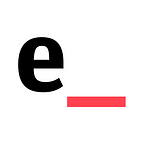Me vs. We: My Relationship With Technology
By Jonne Kuyt
I want to start by asking you a question. You see, sometimes I have a hard time distinguishing between the great…and the nearly-great stuff. In a world saturated by content, I want to know if you ever feel like it’s just all too much. Too many words and diagrams. Too many abstract solutions, absolute ideas. Too much…bullshit.
Sometimes, I feel that way. There are just so many white papers and hacks and promises of the “5 Things You Need To Do RIGHT NOW To Become Incredibly Successful.” I want to turn the tables around; instead of promising you anything, I want to help you think about what I believe are some of the most prevalent topics in the world of design and tech. So no more white papers or quick fixes. Either you’ll like this, or you won’t. Either way, it’s fine by me. (Whether you do or don’t, let’s have a coffee and hash it out.)
Insights from Zurich at TypoTalk’s Brand Day…
I’ve been talking to clients around the globe about how technology can be used to build relationships between people, organizations, and products. However, I stress how hard it is to start a relationship, especially if you want to substitute technology for hard work. Some people don’t want to accept this: Look at the techno-utopists of the world who pledge allegiance to the all-encompassing salvation of technology, or the social media extremists who claim that their life-changing, disruptive app is unrelentlessly loved around the world by millions. To some extent, it sounds more like the kind of relationship a junkie might have with crack…
When working with clients in the fields of health and mass mobility and developing cognitive services for them, I’ve learned a lot about what’s possible (and what’s not) when it comes to the strengths and limitations of technology. What stands out when it comes to developing and redefining relationships between people, products, and services? Here are some of the key insights I shared in Zurich.
Current tech brand relationships are: one-way, opportunistic, reactive, transactional, and evoke a sense of dehumanization.
When brands establish a relationship with their customers by using technological solutions, they’re often unequal, superficial, but most importantly, opportunistic. Whether it’s money or data, the question that organizations ask is “What can I get out of this relationship, right now?” It’s a short-term tradeoff, and I strongly suggest we approach it from a different angle: What if organizational value focused on the duration and quality of the relationship, instead of the short-term transactions and instant conversion rates? What if you were to build on a long-term, more effective and efficient economic life cycle? What could your organization’s potential be?
Would you still send me 10 emails a week? Would you stand behind your consumer, taking responsibility during the good times, but also the bad? If your conversion rate is initially at just 5%, it may seem ludicrous to even consider this. After all, what would it deliver?
Honestly? My first impression is that it would deliver massive untapped potential and value.
If you were a brand, there’s a high chance you wouldn’t “date yourself” past the first few encounters.
Imagine you’re a brand. Would you take yourself out for dinner? Maybe once, out of curiosity. That’s how brands lure you in, after all. But in many cases, you’ll begin to realize there are qualities integral to a healthy relationship your brand is lacking: It may be focused on “me” instead of “we”, it’s wildly unpredictable, and it’s not fully honest. It’s not as open to criticism or constructive feedback or willing to change and adapt for the other. And without these essential qualities, you have a static relationship (or brand) that’s not dynamic or evolving.
Technology provides exciting opportunities we’ve only begun to venture into. So why do we find ourselves stuck in the same rut, repeating the same ineffective actions and procedures over and over? That’s why to help combat staying in this stasis, we’ve developed the Rethink Your Thinking methodology here at Edenspiekermann — to avoid getting stuck with that terrible date.
Can you activate the relationship life cycle thinking through product development and service design? Yes.
We have the proof it works with some of these projects:
- During my presentation in Zurich, we looked into two projects we’ve been involved in: Mercedes and Faraday Future. I demonstrated how it’s possible to transform the relationships between cars and humans, and what the consequences are for the brand as consumers switch from owning a car to having access to them.
- The second case was a project we’ve been working on for Novartis Alcon, showcasing how subscription-based services are changing relationships, as well as getting insights into the role brands now play. Finally, we looked at how technology changes long-term interactions with customers.
- The last project I walked the Brand Day audience through was a revolutionary insurance proposition I’m especially proud of. We completely terminated traditional marketing by moving it to the place it belongs: the personal space. It was too ambitious for this ensurer but there is a number of other interested in the idea.
I’m an optimist.
That’s why I believe that if we can eliminate the anomalies in the current digital environment, there’s a great future ahead of us with technology, which can truly the enabler of building long term truly valuable equal relationships.
